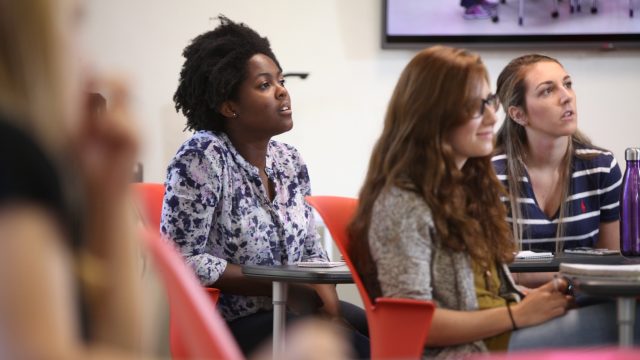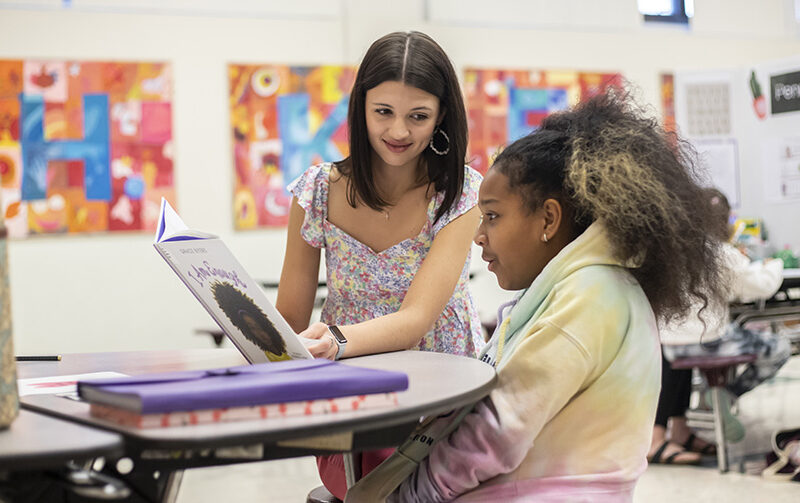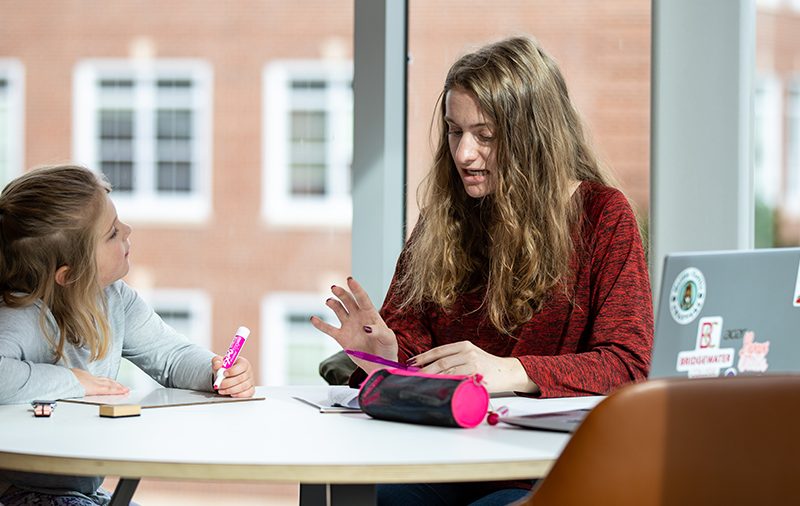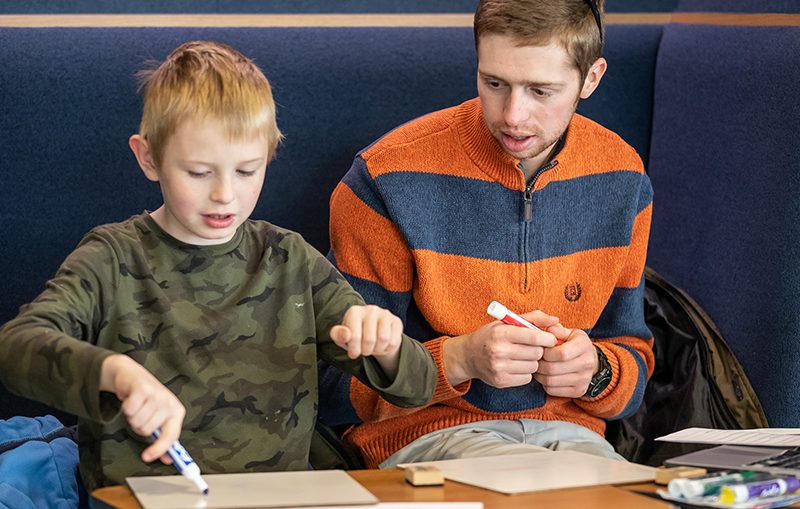Inspire Community One Classroom at a Time
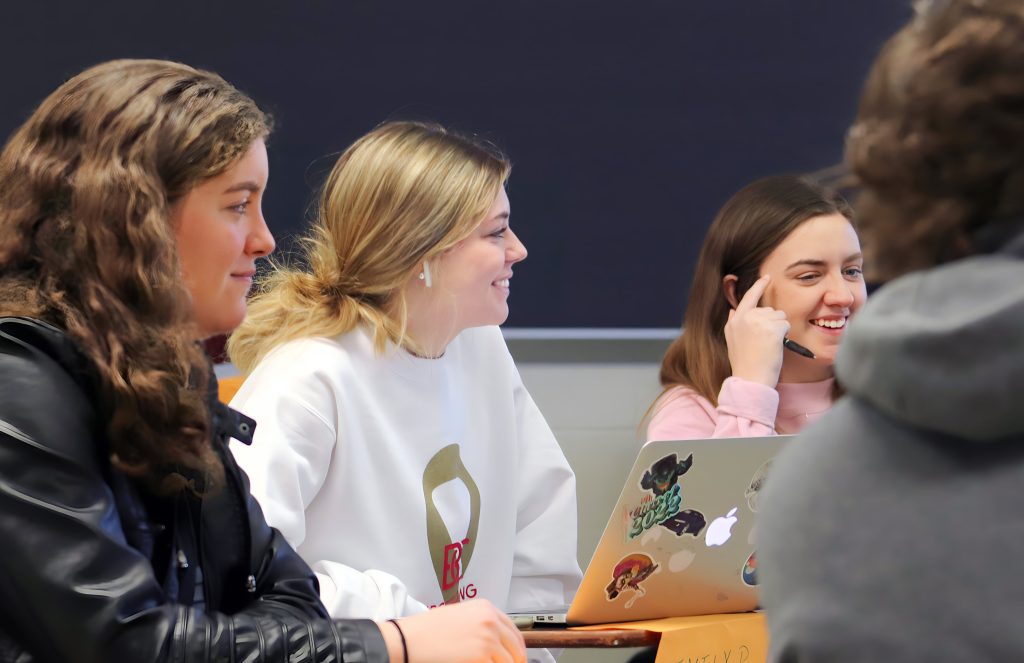
Leaning on an educator can facilitate engaging and thoughtful coordination between student and mentor during the most transformative years of learning. If you have a desire to teach grades 6-12, the Teacher Education Program at Bridgewater College is here to provide a hands-on approach to education. With cross-disciplinary mastery, clinical experiences, and innovation, we transform classrooms into thriving communities.
No workday will ever be the same in a secondary classroom. Build your impact as a mentor, advocate, and role model by becoming a secondary educator through the Bridgewater Teacher Education program. We make it simple with our state-approved and nationally accredited program for secondary education so that you can be licensed to teach in Virginia, and many other states, through reciprocal certification contracts upon completion of the program.
We share a common goal with parents, educators, and policymakers nationwide Connection in the classroom that encourages students to aim for their greatest potentials

Program Acceptance and Transfer Students
Once you are accepted to the program, you major in your chosen content field, complete the general education requirements and complete the required Teacher Education Program courses.
Candidates may also seek add-on endorsements to their teaching license by taking a Praxis subject area exam.
If you are a transfer candidate, you should meet with a member of the education department as soon as you arrive at Bridgewater to plan your education course sequence.
Required Courses
In addition to completing the core courses of your chosen major, students must also complete the required education courses to obtain licensure certification:
- EDUC 200 – Educational Psychology (3 Credits)
- EDUC 230 – Becoming a Culturally Competent Teacher (3 Credits)
- EDUC 225 – Community Engagement Clinical Experience (1 Credit)
- EDUC 334 – Content Area Literacy (3 Credits)
- EDUC 372E – Classroom Management, Secondary (4 Credits)
- EDUC 380X – Practicum in Current Teaching Techniques (3 Credits)
- EDUC 412 – Curriculum and Instruction Secondary (4 Credits)
- EDUC 452 – Seminar in Educational Practices, Secondary (1 Credit)
- EDUC 470 – Professional Student Teaching (13 Credits)
Candidates may also seek add-on endorsements to their teaching license.
Faculty Spotlight
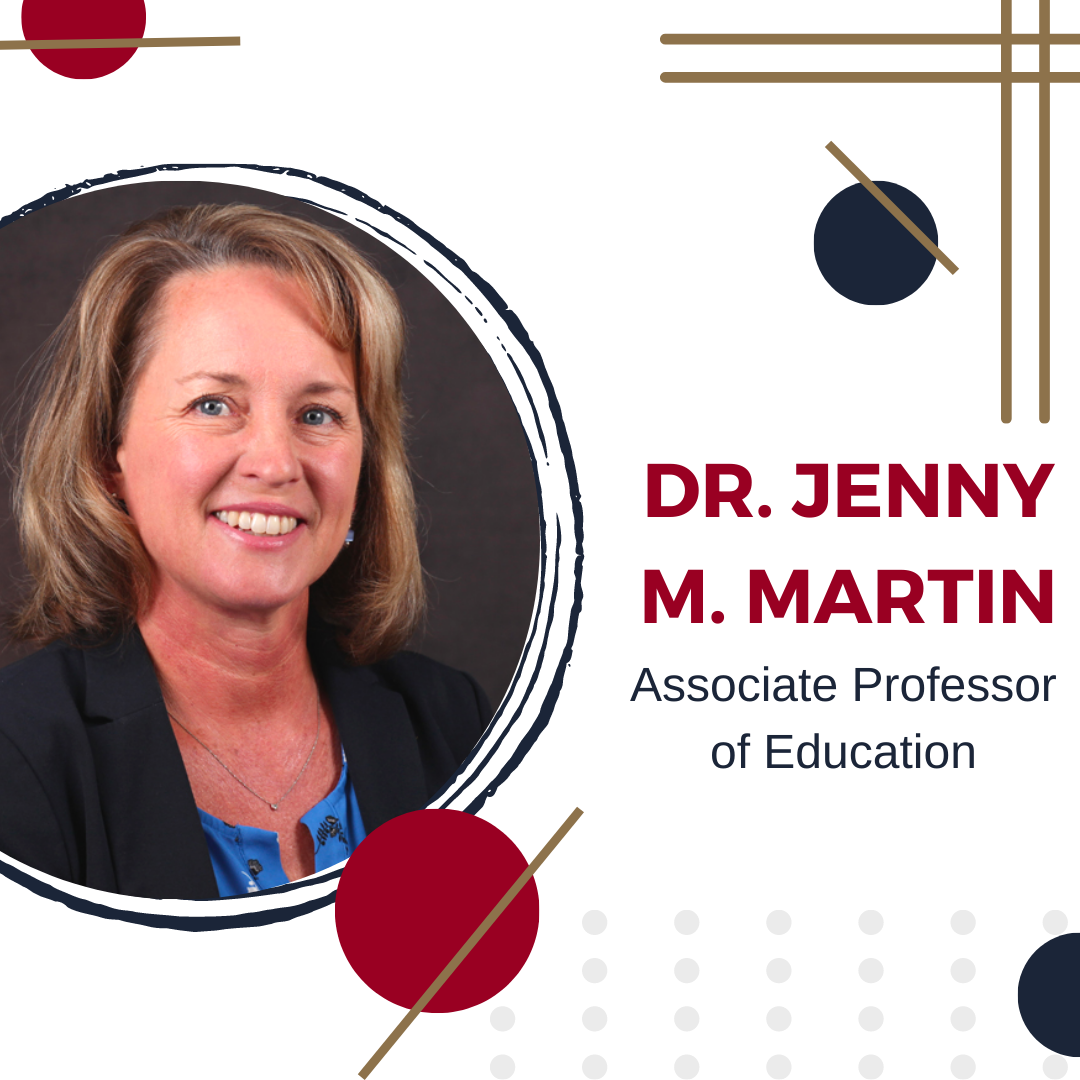
Dr. Jenny Martin is a devoted educator who provides students support and insight as an Associate Professor of Education and the Coordinator of Secondary Education at Bridgewater College.
As a licensed English teacher for grades 9-12, and the Teacher Education Program’s Secondary and All Grades and Testing Support Coordinator, Dr. Martin finds joy in getting to know each of her students as she prepares them for testing on their journey to becoming a teacher. She strongly believes that assessments alone should not keep teachers from leading in schools, because often the best teachers find that learning and assessment have not come easy for them.
Dr. Martin’s research interests include digital internships in teacher education, voice in teaching writing, and new literacies.
When she’s not teaching, Dr. Martin enjoys spending time with her family, swimming, hiking and cycling, reading, and working in her flower beds.
“Teachers have to take good care of themselves so that they can take good care of their students.”
– Dr. Martin
Dr. Martin’s advice to students interested in becoming a teacher is to understand that teaching means meeting students where they are and educating them to become a better version of themselves.
Clinical Experiences
Students interested in the Teacher Education Program must complete a set of clinical experiences in their licensure and endorsement area.
The observational and participatory clinical experiences you would be expected to complete are:
EDUC 225: Community Engagement Clinical Experience; 20 hours
EDUC 334: Content Area Literacy; 20 hours
EDUC 372: Classroom Management Secondary; 20 hours
EDUC 412: Curriculum and Instruction; 20 hours
EDUC 380X: Practicum in Current Teaching Techniques; over 100 hours
EDUC 470: Student Teaching; 450 hours
All students will have completed more than 150 hours of clinical experience in 6-12 classrooms prior to their semester of student teaching.
Licensure for Secondary Education
Tests Required
Praxis Secondary Content Knowledge
There are many kinds of Praxis Exams which assess the qualifications of educators depending on the subject and grade level they teach.
For more information regarding required assessments for VA licensure in Secondary Education, access our Assessments Required page. Our comprehensive list of the exams specifies passing scores, costs, preparation, and all the information you need to learn about becoming a licensed educator.
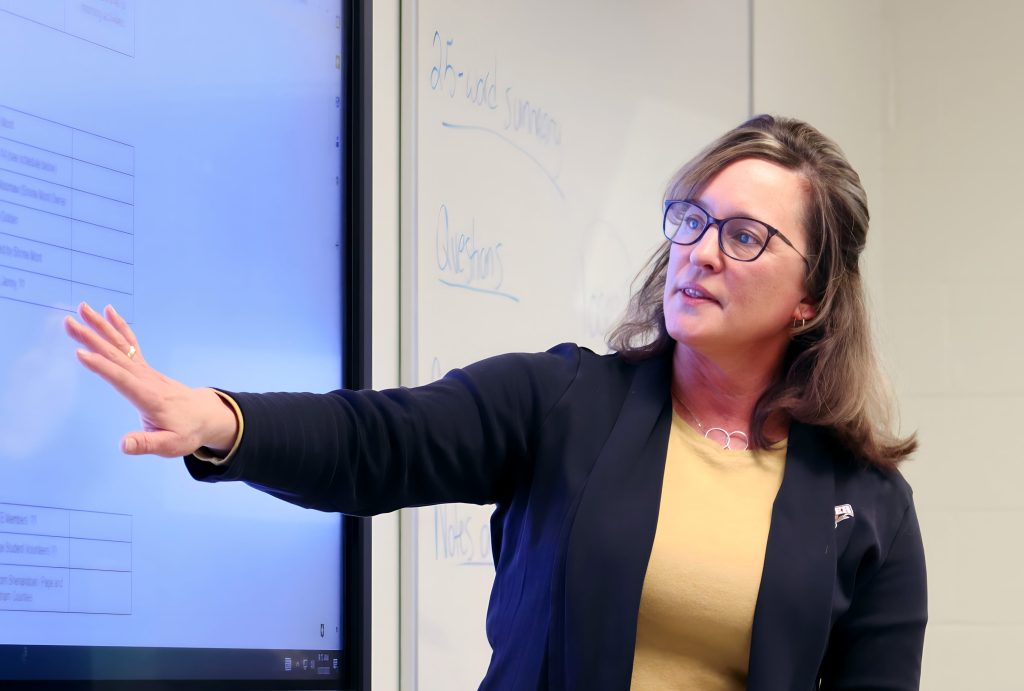
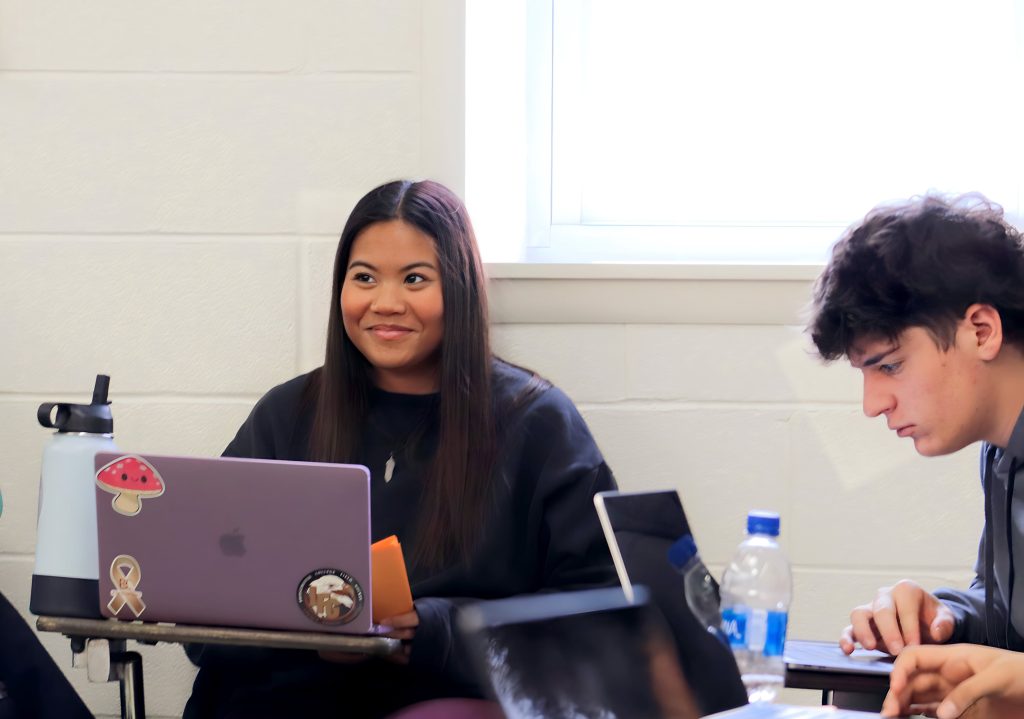
Students of the teacher education program listen intently to Dr. Martin as she administers instruction for a socratic seminar in Educational Psychology.
Frequently Asked Questions
The practicum is a three-week, full-day, placement taken immediately before student teaching. You will be expected to teach in a grade-level range different from your student teaching placement, but within your range of licensure. You will teach a minimum of two lessons, partnering with the cooperating teacher and engaging in reflective seminars. The course number for the education practicum is EDUC 380X.
A clinical experience is a guided, hands-on, practical activity designed to allow for practicing and demonstrating the application of professional knowledge and theory in educational settings. These include, but are not limited to, culminating clinical experiences such as student-teaching or internships.
Student teaching placement is a semester-long final clinical experience involving instructional planning, observation and teaching. You will be supervised by the cooperating teacher and a college supervisor. During the placement, you are expected to assume complete responsibility for the classroom and to engage in all activities related to teaching in the school community.
Reciprocal certification contracts allow an educator to obtain a teaching license in the state of Virginia that is transferable among 46 other states. Learn more about how teaching license reciprocity varies by state.
